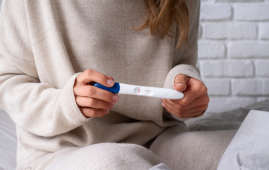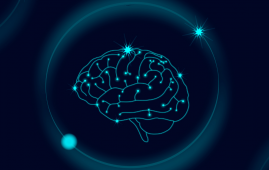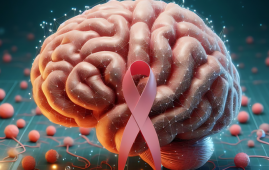

A new research report from Brigham and Women’s Hospital and collaborators suggests that menopause does not always increase the risk of depression and other mental health disorders.
Menopause has long been assumed to cause psychological anguish, but a new review reveals that this isn’t necessarily true. The review was authored by experts from Brigham Women’s Hospital, a founding member of the Mass General Brigham health care system, and international partners. It is the third in a series of menopause-related publications published in The Lancet. Its authors found no indication that menopause increased the risk of mental health disorders such as depressive symptoms, major depressive disorder, anxiety, bipolar disorder, and psychosis among all women.
However, the researchers discovered that certain groups are more vulnerable to mental health issues during menopause: people were more likely to report depressive symptoms if they had previously experienced depression, if their sleep was severely disrupted by nocturnal hot flushes, or if they had a stressful life event during menopause.
According to the researchers, in addition to setting negative expectations for persons nearing menopause, the potential misattribution of psychological discomfort and psychiatric problems to menopause may harm women by delaying correct diagnosis and treatment.
“The take-home message for women and their clinicians is that we shouldn’t assume that if someone has mental health symptoms during the menopause transition, those two things are related,” says co-author Hadine Joffe, MD, MSc, interim chair of the Department of Psychiatry and executive director of the Connors Center for Women’s Health at Brigham and Women’s Hospital.
“We don’t want to invalidate the fact that some people will experience mental health symptoms during the menopause transition, but it’s not guaranteed.”
The menopause transition—the period between when an individual begins to experience hormonal and menstrual changes and their final menstrual cycle—can last four to 10 years and begins at 47 years of age on average. Though menopause is commonly regarded as emotionally draining due to hormonal variations, this period of life also corresponds with significant midlife concerns and life events, such as relationship or work changes, making it difficult to determine the relative significance of these factors.
To see if there is a link between the menopause transition and mental health issues, the researchers examined prior studies on the prevalence of depressive symptoms, major depressive disorder, anxiety, bipolar disorder, and psychosis during menopause. They emphasized prospective studies that looked at mental health before, during, and after menopause, including many conducted at Mass General Brigham.
To determine if there is a link between the menopause transition and mental health concerns, the researchers looked at previous studies on the prevalence of depressive symptoms, major depressive disorder, anxiety, bipolar disorder, and psychosis. They focused prospective investigations on mental health before, during, and after menopause, with several undertaken at Mass General Brigham.
“If you’ve never had major depression before, you’re extremely unlikely to have a first episode of clinical depression during the menopause transition,” Joffe said.
Depressive symptoms were also more common in people who had a very long menopause transition, people who had severely disrupted sleep due to nocturnal hot flashes, and people who had stressful life events in the six months before being assessed.
The researchers discovered no strong evidence that the risk of anxiety, bipolar illness, or psychosis is universally increased during the menopause transition, albeit there is less literature on the relationship between these disorders and menopause.
The majority of menopausal research have been conducted in high-income nations, thus it is uncertain how these findings would apply to lower- and middle-income regions. There is relatively limited information about how menopause affects transgender and gender-diverse people.
The researchers conclude that hormone therapy is ineffective as a first-line treatment for clinical depression following menopause. When patients arrive with mental health symptoms during menopause, physicians should assess their history, prior mental health diagnoses, and current life status.
“We have a negative media image about menopause, but without looking at someone’s mental health prior to menopause, it’s very challenging to understand what might be biologically related to menopause as opposed to life stage or life trajectory,” Joffe said. “Clinicians need to think about what happened before, because depression might be coincident with menopause but unrelated.”
More information: Brown, Let al.Promoting good mental health over the menopause transition, The Lancet (2024). DOI: 10.1016/S0140-6736(23)02801-5
more recommended stories
 Cardiac Micro-Vessels: A Novel Imaging Approach
Cardiac Micro-Vessels: A Novel Imaging ApproachUndiagnosed chest pain and heart problems.
 Osteoarthritis Cause: Vitamin E Levels Not Linked
Osteoarthritis Cause: Vitamin E Levels Not LinkedA recent study published in Scientific.
 Comparing Cancer Risk: Medically Assisted vs. Natural Conception
Comparing Cancer Risk: Medically Assisted vs. Natural ConceptionIn a recent JAMA Network Open.
 Brain Chemistry & Political Attitudes: Neural Switch Theory
Brain Chemistry & Political Attitudes: Neural Switch TheoryIn summary, a recent study uses.
 Immunosuppression Driver Found in Glioblastoma
Immunosuppression Driver Found in GlioblastomaFilippo Veglia, Ph.D., an assistant professor.
 Early Brain Development: Gene Control Atlas Unveiled
Early Brain Development: Gene Control Atlas UnveiledAn atlas of the brain’s early.
 PLS Riskier in ABO Mismatched Lung Transplants
PLS Riskier in ABO Mismatched Lung TransplantsPassenger lymphocyte syndrome (PLS) is a.
 Lysosomal Function in Parkinson’s Disease Risk
Lysosomal Function in Parkinson’s Disease RiskThe genetic traits that affect the.
 Omega-6 Fatty Acid Role in Bipolar Disorder
Omega-6 Fatty Acid Role in Bipolar DisorderHigher concentrations of arachidonic acid, an.
 Transplant Drug Shows Promise in Slowing Alzheimer’s in Seizure Patients
Transplant Drug Shows Promise in Slowing Alzheimer’s in Seizure PatientsProtein imbalances, which heighten the excitability.

Leave a Comment